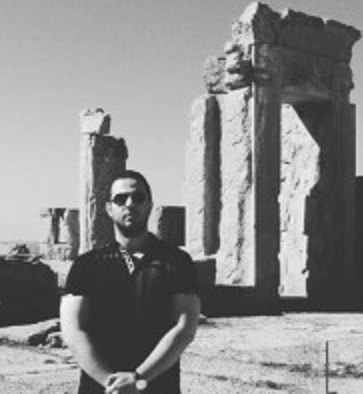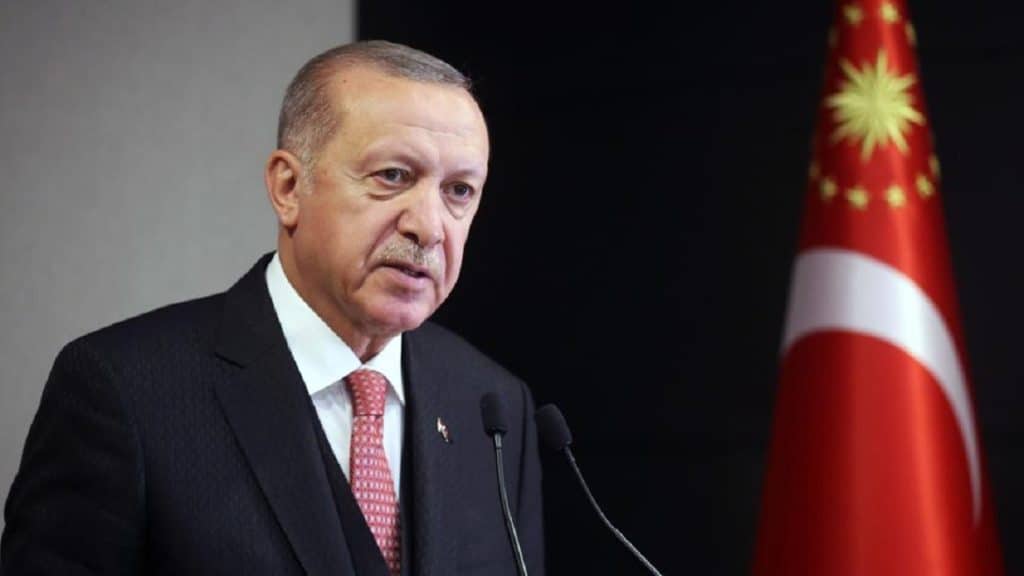By Javad Pasandideh
Following the recent victories of Azerbaijan in the Nagorno-Karabakh region, part of which has been achieved with the support of Turkey, there are long and familiar whispers from Ankara leaders about the dream of uniting the Turkish lands and reviving the imaginary empire of Great Turan is heard!

In this regard, Erdogan’s possible decision to house Turkish-backed Syrian militants and their families in Karabakh and to try to change the composition of the Armenian population in the region undoubtedly raised security concerns for the Caucasus’s northern and southern neighbors, Iran and Russia.
Historical background of Turkey’s political and military presence in the Caucasus:
A large part of the South Caucasus region was under Iranian rule before the Iran-Russia War and the Golestan and Turkmenchay treaties.
With the defeat of Iran from Russia and the loss of the Iranian lands of the Caucasus, this region came under the domination of the Russian emperors.
The Tsarist Russian rule in the Caucasus for nearly a century overshadows many of the region’s cultural and identity issues.
Before the Russian domination of the Caucasus, and especially the Muslim cities of this region in historical Aran region (present-day Caucasus Azerbaijan), the political elites and elders of the region introduced themselves with Iranian identity and part of the people of the vast Iranian civilization.
The Russians’ attempt to destroy the Iranian identity of the Caucasus and to implement Russianization policies exposes new generations living in the region to a kind of contradiction about their own historical and cultural roots.
At the same time, with the formation of new perspectives of Turkish identity and race by works of thinkers such as Ahmad Agayev and Mohammad Amin Rasoulzadeh, the cultural and political developments in the Caucasus are shaping.
On the other hand, the coup d’etat of the Committee for Unity and Progress in 1908 against the rule of Sultan Abdul Hamid II gradually created new opportunities for the further growth and influence of Pan-Turkism in Turkey and the Caucasus.
Following the fall of the Russian Empire and the October Revolution events in 1917, a good platform was provided for the nations and tribes living in the Russian Empire to declare their autonomy and form new political entities.
Thus, the formation of the Transcaucasian Confederation and the subsequent establishment of the Republics of Armenia, Georgia, Azerbaijan in the South Caucasus and the Mountain Republic in the North Caucasus pave the way for the formation of new political entities.
Meanwhile, with the outbreak of the First World War, the Ottoman Empire with its new political policy and in the path of reviving the Turkic Empire from the Black Sea to Central Asia and northwest of China, with new motives, entered to the Caucasus.
The political instability resulting from the fall of the Russian Empire and the internal problems of the Bolshevik Russian leaders in the fight against domestic opposition and foreign aggressors created a good opportunity for the Ottoman to increase their influence in the Caucasus. During this period for the Ottoman government, the Caucasus region is considered as an important bridge connecting with the Turkish world in Central Asia.
On the other hand, it can be said that Ottoman policies in the Caucasus and the support of the leaders of the Baku Equality Party, such as Hajinsky and Rasulzadeh, were among the reasons for the lack of formation of new independent political entities in the Caucasus.
With the defeat of the Allies in World War I and the occupation of Istanbul and the imposition of the Treaty of Modrus on the Ottoman government, the ambitious project of Ottoman Turkey to realize the Turanian Empire failed to a large extent.
Also, following the establishment of the Soviet regime in the Caucasus along with the signing of new treaties between the Soviet Union and Ataturk, further restrictions were imposed on Turkey.
Therefore, after that, Pan-Turkism shapes as a kind of cultural movement in the form of the Republic of Turkey. On the other hand, political changes in Iran and other neighboring countries in the Middle East limit the scope of territorial expansionist tendencies for new Turkish leaders.
Recent events in Karabakh and Erdogan’s ambitions:
With the recent war outbreak in Nagorno-Karabakh, the Turkish government sent arms aid and dispatched quarrelsome Syrian paramilitaries under its command to support Azerbaijan in its fight against the Armenians .
Armenian Defense Ministry claims that Turkish Sukhoi 25 fighter jet shot down by Turkish F-16 fighter jets, and also Ankara’s sending arms and terrorists to Karabakh are evidences of the Turkish government’s support for Baku in the recent war.
In this regard, Erdogan even in a message addressed to the Armenian people, called on them to rise up against his rulers!
Repeated requests by Erdogan for the presence of Ankara troops along with Russian peacekeepers in the newly formed Nakhchivan-Karabakh corridor, and provocative speeches and statements by the Turkish President at the Azerbaijani Army honor parade , based on the unification of the lands on both sides of the Aras River!! Among them is evidence of the Turkish government’s ambitious political and military leanings in the South Caucasus.
Conclusion:
The concerns expressed by the Iranian Foreign Ministry about the presence of terrorists on the borders of Iran and Karabakh, along with Putin and Russia’s long standing suspicions about Turkey’s movements in the West Asian region, could pose new challenges for Erdogan and the leaders of Ankara.
Also, the escalation of verbal tensions between the EU and Turkey could change the region and the world’s opinion about Erdogan’s policies more pessimistic. So, we must wait for the implementation of Ankara’s special policies in the context of new developments in the Caucasus to see what will be the possible reactions of the neighbors of the Republic of Azerbaijan, Iran and Russia, as well as the trans-regional governments, to the policies of the Turkish government and the President of this country.
Author: Javad Pasandideh (Political analyst. Teheran, Iran).
(The views expressed in this article belong only to the author and do not necessarily reflect the editorial policy or views of World Geostrategic Insights).







